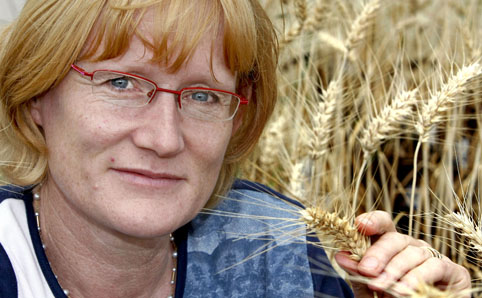Latest News Archive
Please select Category, Year, and then Month to display items
05 May 2023
|
Story EDZANI NEPHALELA
|
Photo Supplied
![]()
This audit process will assess the resources available and required for the implementation of a Language policy framework for higher education (2020) – such as the development of multilingual terminologies, translation services for teaching and learning materials, campus signage, as well as various multimedia collateral – including their quality and relevance to the needs of the students and faculty. The audit will include an assessment of existing resources and whether they are furthering implementation goals, and may also include the gathering of feedback from students and faculty to identify improvement areas.
Dr Nomalungelo Ngubane, Director of the UFS Academy for Multilingualism, said the process will help the UFS identify the essential languages resources that are available for the successful implementation of the 2020 Language Policy for Higher Education framework (LPHE). “The audit will identify how much has been done at the UFS and which institutions we can collaborate with, for example, in the development of Sesotho, so that we do not reinvent the wheel, but we close the gaps.”
Once the audit is completed, the institution will develop a plan for resource allocation to address the identified gaps. This may involve acquiring new resources, upgrading existing ones, or reallocating existing resources better to meet the needs of students, staff, and faculties.
Due to the impact this audit will have on various stakeholders, all staff and students are encouraged to participate. To attend the audit, please RSVP here by 30 May 2023.
African Union acknowledges one of our own
2012-01-23
 |
|
Prof. Maryke Labuschagne
Photo: Hannes Pieterse
|
The African Union awarded an international award to Maryke Labuschagne, a professor in Plant Breeding at our Faculty of Natural and Agricultural Sciences, for her contribution to science in Africa.
Prof. Labuschagne received the African Union Kwame Nkrumah Scientific award in the category Life Sciences – Continental level. This is the highest level of this prestigious award programme.
The African Union Commission is committed to ensure that science and technology contributes to sustainable development efforts. In 2008 the African Union Commission launched the prestigious African Union Scientific Award Programme. This programme was later renamed the African Union Kwame Nkrumah Scientific awards.
The programme is implemented at National level for young researchers, Regional level for women scientists and is open to all scientists on Continental level.
The Continental level is the highest level of the programme. The objective is to give out scientific awards to top African scientists for their scientific achievements, valuable discoveries and findings.
Prof. Labuschagne has been part of our university for the past 23 years. Over the last 20 years she has been involved in training and educating scientists in plant breeding all over Africa. Her work also entails the development of better cultivars to ensure food sustainability on the continent.
“I really did not expect to win this award. The criteria were really strict and one always sells yourself and your achievements short,” says Prof. Labuschagne.
With this award, Prof. Labuschagne also receives US $100 000 (about R 804 180) in prize money, which will be used to renovate her department’s lab facilities and provide bursaries.
The official award ceremony will be held on Saturday 28 January 2012 at the United Nations Conference Centre in Addis Ababa, Ethiopia.